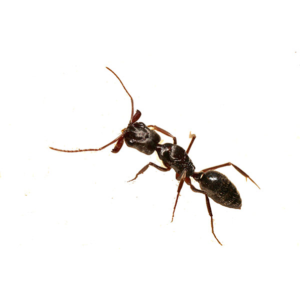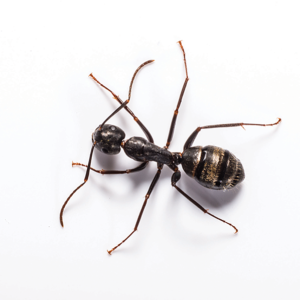Western Harvester Ant in Houston, TX
Harvester ants, also known as “red ants,” are common in the arid grasslands of Houston, TX. Famous for their seed collecting and painful stings, Western harvester ants remove plants near nests by clipping leaves and stems. Although they do not invade homes, they are occasional pests of lawns and playgrounds, where people may get stung by them. Harvester ant stings are painful and for sensitive individuals, a visit to the physician may be required after being stung.
Western Harvester Ant Habitat
The Western harvester ant has the most complex nest of all sixty species of harvesters, building mounds that can be three feet high, sixteen feet in diameter, twenty feet deep, and containing as many as 10,000 ants. Unlike some other ant species, Western harvester ants prefer to construct nests in disturbed soil. While nests appear to be random piles of dirt, each nest contains several interior chambers. The large mounds created by Western harvester ants can interfere with mowing and harvesting equipment. Additionally, the Western harvester ant can strip away as much as 20% of the vegetation in a pasture.
Western Harvester Ant Behaviors, Threats, or Dangers
Although Western harvester ants do not invade homes, they can be a concern as they infest lawns and playgrounds, and possess a powerful sting. Their sting is not considered as aggressive as fire ants, however, a harvester ant sting can last longer than other stinging ants. Individuals that are sensitive to ant stings, may have serious allergic reactions, such as anaphylactic shock. As pests, their most significant impact is in agriculture where they sometimes cause damage to crops, rangelands, and livestock. If a Western harvester ant infestation is suspected, it is recommended to contact a professional ant exterminator.




